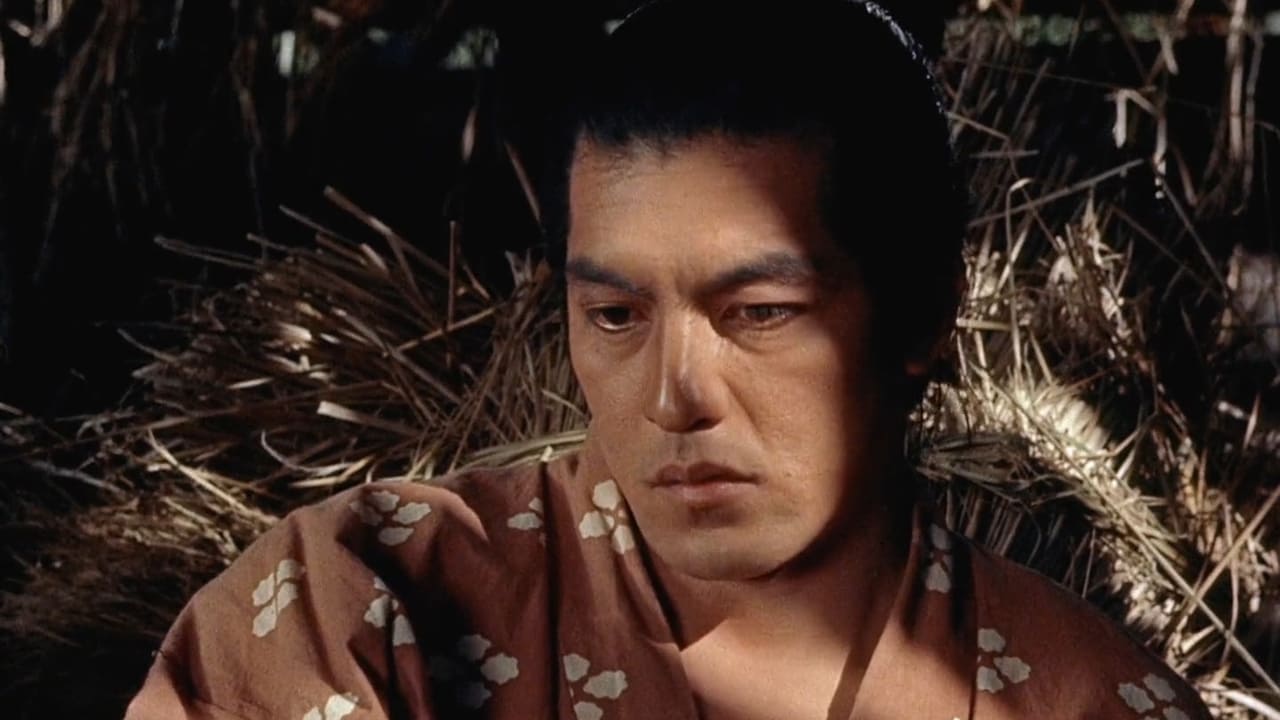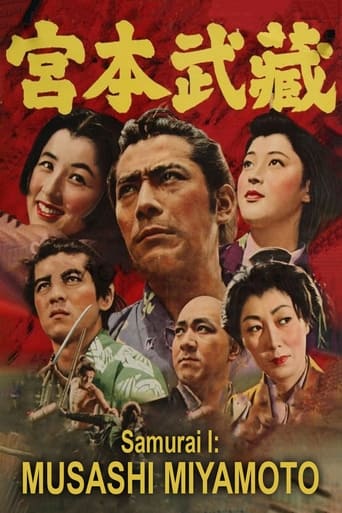ClassyWas
Excellent, smart action film.
Aneesa Wardle
The story, direction, characters, and writing/dialogue is akin to taking a tranquilizer shot to the neck, but everything else was so well done.
Payno
I think this is a new genre that they're all sort of working their way through it and haven't got all the kinks worked out yet but it's a genre that works for me.
Cassandra
Story: It's very simple but honestly that is fine.
lokko53
An influential picture of a legendary character. The director precedes Akira Kurosawa and provides the template that is expanded upon by the latter film director. I believe that Kurosawa films are essential for any film lover, but if you fall for well done samurai movies, than this is a must see film. The characters, storytelling and camera techniques are incredibly well done for those who appreciate the historical development of films. This film came out at the same time as Seven Samurai and won the Academy Award for best foreign film. Musashi is a Japanese seventeenth century folk hero who has been depicted in numerous art forms throughout Japanese history.Toshiro takes on the role with complete mastery. It begins with him up on a tree idolizing the marching warriors through his small village. He goes off to war to make a name for himself. His childhood friend decides to follow along despite his engagement to Otsu. In war they encounter defeat and escape to improve. They meet a mother and daughter out in the country who help them heal. Ultimately, Musashi separates from his friend and returns to his town where he becomes a fugitive.As part of a trilogy, this film sets up the stage for the next two, but it also stands very much on its own. Musashi begins as an impetuous young man and the film ends when he has matured. One drawback is that we only get glimpses into the character over long periods of time. Musashi comes off as an intense character, obsessed with fame, even over the company of women. His treatment of women appears to be an honorable characteristic or it could be a reality for someone who has not properly developed certain social skills. There is a certain sympathy that the viewer develops with regard to such a character where fame at all costs stunts the quintessential human drive for companionship and friendship. He becomes a loner that no one can access. The character development from a naive beginning with indiscriminate fighting to a mature more restrained character is engaging. In this film you also have the love triangle that will continue through the subsequent films.The director Inagaki captures incredibly well the local country side scenery full of beautiful mountains. The most memorable scene is when Musashi is hung from a tree by the Zen monk as a way of teaching a lesson. The Zen monk is a memorable character, but I wished that more could have been developed with the Japanese Zen background context. Ultimately, Musashi emerges as a confident man ready to accomplish his goal of becoming a samurai with a better structured agenda. On the side, the viewer is left to contemplate the fates of Otsu, and Musashi's friend Matahachi. A great film that looks into the character side of Musashi whereas the next two installments will make great use of traditional samurai duels.
lastliberal
One can watch this film and learn a lot. The philosophy woven throughout, mainly by the Priest Takuan (Kuroemon Onoe), about what it means to be a man and honor your family (community) is the hidden jewel of this film.Takezo (Toshirô Mifune) represents all the rebellious youth that only think of themselves. He cares nothing for the damage he does. To the entire village, he is a dangerous animal. But, the Priest finds that he is worthy of rehabilitation and proceeds to make him into a Samurai warrior in service to the castle.This is a slow and thoughtful film, full of swordplay for those looking for that, but it is so much more for those who take the time to discover it.Kaoru Yachigusa plays Otsu, who is abandoned by her fiancé (Rentaro Mikuni) and falls in love with Takezo. Unfortunately, his training, after she waits for him for three years, has only begun as he begins a journey across Japan to get in touch with the people.I can't wait to see the next installment of this trilogy, which is cinematically brilliant, as one would expect from a Criterion disk, and features outstanding acting from all concerned.
MartinHafer
Toshiro Mifune stars as a foolish young man who longs to run off to war to make his fortune and prove he is a man. When a battle looms, he runs off to volunteer and his friend, showing some initial reluctance, follows. Instead of glory, they barely escape with their lives. Their paths leads them to two women--an incredibly evil sociopathic mother and her daughter who is not yet as jaded and selfish as the mother. Mifune resists temptation and runs from them, while his friend succumbs to their pleas to stay--and in essence throws away his life and honor. Where Mifune's path takes him I'll leave for you to discover when you watch the film.Despite having Mifune in the lead, this is NOT an Akira Kurasawa film and some may be disappointed that it is a little more stodgy than one of his films. Instead, I just see it as different but certainly worthwhile. The movie does have tremendous scope and is a very effective opening film to the Samurai Trilogy.It is important to note that these movies were made nearly 50 years ago and existing copies on DVD are in poor condition--with fading and sepia tones instead of the vibrant original. This became VERY apparent when I saw the beginning of the 3rd film. The color was nearly perfect for the initial scene and that is great, as it's a beautiful and extremely artistic shot. At times throughout the movie, some of the scenes are once again vivid while others are faded and lose their impact. You can't blame the film for that, but you wish Criterion would try to digitally enhance the prints they've got to improve the colors and get rid of some scratchy cels.
dorlago
This is the best of the Samurai Trilogy! A very entertaining, fast paced film! Mifune does his "Wild Man" thing wonderfully! The photography is breathtaking. It's nice to see Mifune in color for a change! Loosely taken from the pages of Japanese history this is the story of a mans triumph over the ravages of war, social stigma and his own atavistic tendencies. The moral of this film.....Maybe love does not conquer all but it sure helps!

